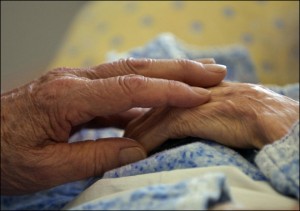The Time of Giving and the Giving of Time
 Christ is quoted, “It is more blessed to give than to receive.” Therein is one of life’s toughest lessons. How do we teach our children the habit of giving?
Christ is quoted, “It is more blessed to give than to receive.” Therein is one of life’s toughest lessons. How do we teach our children the habit of giving?
We know that social modeling is a powerful teacher. If we lecture our children on giving, yet portray a life of miserliness, there is little chance that our children will learn that it is “more blessed to give than to receive.” If our children will be able to learn to outgrow their selfishness, they must see our giving. Yet, not all giving is created equal.
I am a busy man, and, quite frankly, it is easier to write a check to the church or swipe a card for the relief agency than it is to get personally involved with the struggling people around me. Although the churches and relief agencies need the cash to assist during times of need—and there is good reason to provide charitable contributions in the form of cash—giving only money, without getting personally involved, does little to model the blessings of giving for our children. In fact, it is very difficult for them to get personally involved with giving cash, as cash is often one resource they have little of. In addition to cash contributions, getting personally involved is a very important component of the blessings of giving.
Many years ago, my wife convinced me that we needed to find some personal way to give at Christmas, some method of personally getting involved, and getting our children personally involved, in the exercise of giving. Through our church, we found Miss Edith. Miss Edith is an elderly woman who has outlived her family. Her brothers are all deceased; her sisters are all deceased. She has no children. She has no family except the church family. We added Miss Edith to our Christmas list.
Like your family, we have many holiday traditions that keep us very busy on Christmas Eve and Christmas Day, but we added Miss Edith to that list. On Christmas Eve, we pack her presents in our car, and we drive to “the home.” We sit down with Miss Edith and look through her pile of Christmas cards, coming almost exclusively from the families in our church. We give her the presents. We sing Christmas carols with her. She has become part of our Christmas tradition.
Miss Edith is now confined to a wheel chair, and she slumps over in that chair. She falls asleep in the middle of the Christmas carols. Her memory isn’t what it used to be, so we have to remind her who the people are who sent the Christmas cards. Even though we now wrap her presents with only three small pieces of tape, we have to help her unwrap them, because she can’t quite handle the paper. Miss Edith has become a most important Christmas lesson to our family, as we are reminded anew, that indeed, “It is more blessed to give than to receive.”
Christmas is the time of giving, but giving requires that we give of ourselves. We need to learn the Christmas habit of personal giving, so that we can model and teach it to the next generation. That’s the simple lesson of Christmas giving, except for one other detail.
Although Christmas comes but once a year, Miss Edith’s needs are not so easily scheduled. We’ll visit Miss Edith on Christmas Eve, because Christmas is the time of giving. But the giving should not end there. We’ll be back again the next week, and the next week, and the week after that, because the giving of time should never be seasonal.

